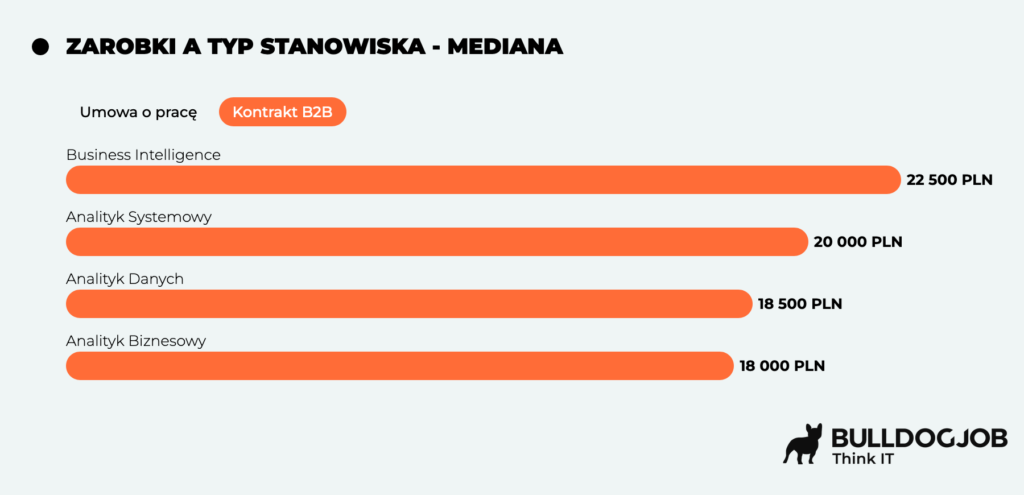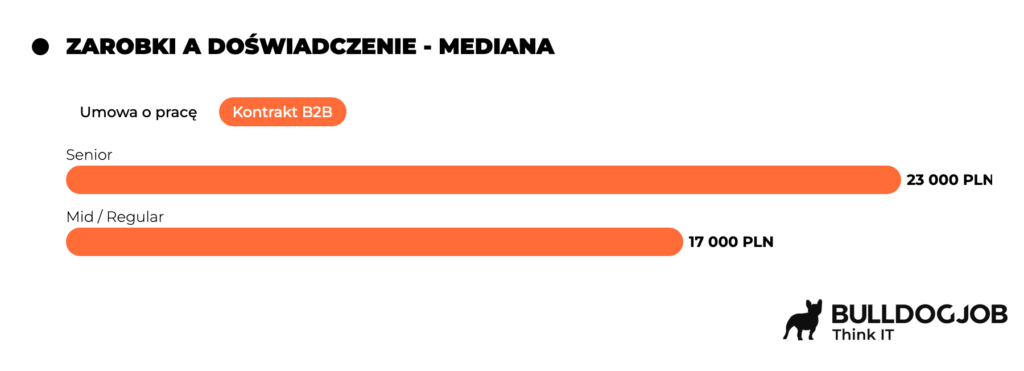Leaders of Polish higher education 2025

Big Data is one of the most transformative phenomena in today's digital economy, impacting almost every aspect, of the business enterprises run.
There is no doubt, then, that in an era of exponentially increasing amounts of data generated every day, the need for companies to employ specialists capable of analyzing this data and transforming it into valuable information is becoming critical for organizations wishing to remain competitive.
Big Data analysts are therefore becoming some of the most sought-after professionals on the job market, and a career track in this field offers both job stability and opportunities for continued growth, as well as... attractive salaries.
In this article, we'll try to give you an idea of what exactly Big Data is, what skills are necessary to become a data analyst, and what steps you need to take to start a career in this fascinating - and most importantly - forward-looking field.
The term Big Data has emerged with the advent of the digital transformation era - but what exactly does it refer to? In simple terms that anyone can understand, it can be put this way: that every online interaction, every click, purchase or social media post generates data. As you can easily imagine, that's a huge, almost unimaginable amount of data, generated every day.
Thus, there was a need for advanced solutions to analyze and exploit this information potential, and at the same time a need for specialists in this new field, including data analysts, data engineers and data scientists.
What exactly do they do?
A Big Data analyst is such an intermediary between raw data and business decisions, so he or she must be able to find valuable information in the thicket of numbers and turn it into strategic recommendations for business executives.
Getting into the details already, his tasks include acquiring, cleaning and preparing data for analysis, through building analytical models and algorithms, to interpreting the results and creating reports for management. To do this, an analyst uses advanced statistical tools and methods, often supported by artificial intelligence and machine learning.
However, this is not purely technical work - it also requires an understanding of the business context of the data being analyzed and the ability to translate complex results into concrete business recommendations.
This specialization can be successfully translated 1:1, which means data scientist. How does it differ from a Big Data analyst? Well, an analyst focuses mainly on analyzing and interpreting data, while a data scientist combines programming, mathematical and business skills to create advanced predictive models and machine learning algorithms.
In one sentence - a data scientist not only analyzes what happened in the past, but also builds models to predict future trends and behavior.
A data engineer, on the other hand, oversees the creation and maintenance of the data processing infrastructure used by Big Data analysts and scientist. This is therefore a more technical role, involving the design of databases and data warehouses and ensuring the flow of data between different systems.
Working in Big Data requires a broad spectrum of skills, both technical and soft. The data analytics profession is a combination of computer science, mathematical and statistical knowledge, as well as communication and business skills.
The foundation of a Big Data analyst's work is knowledge of software and analytical tools. It is worth starting here by learning Excel, which, despite its simplicity, is still a widely used analytical tool. Next, it is essential to know a high-level programming language Python, which has become a standard in the field of data analysis, thanks to libraries such as NumPy, Pandas and Matplotlib, which enable efficient data processing, analysis and visualization.
As a complement to your knowledge and skills, it is also worth learning the R language, crucial in statistical analysis, and even invaluable in effectively managing relational databases and creating complex queries will in turn be knowledge of SQL. In the context of Big Data, where we often deal with unstructured or semi-structured data, knowledge of NoSQL technologies such as MongoDB or Cassandra is also essential.
And when it comes to accompanying technologies for Big Data analysis, mention should be made of the familiarity with Apache Hadoop, which enables distributed storage and processing, which is crucial for huge data sets, and Apache Spark, which offers high-speed in-memory processing, which significantly speeds up analysis.
An equally important aspect of a data analyst's job is familiarity with cloud computing. Platforms such as Microsoft Azure, AWS (Amazon Web Services) and Google Cloud Platform offer a range of data processing and analysis tools that are already becoming the industry standard.
A data analyst, must also be able to effectively communicate the results of his or her analysis, and here knowledge of data visualization tools such as Tableau or Power BI, which enable the creation of interactive dashboards and reports that can also be understood by non-technical people, will certainly come in handy.
In addition to the above technical competencies, a Big Data analyst should also be characterized by soft skills. The ability to think analytically and solve problems is fundamental here - as the analyst must be able to ask the right questions and find answers in the data.
On top of that, there is also communication skills - even the best analysis will not bring much value if it is not communicated effectively. An analyst must be able to tell "data stories" in a way that is understandable and compelling, tailored to the audience.
Curiosity and inquisitiveness to continuously learn new technologies and analysis methods are also extremely important. The analyst must also understand the specifics of the industry in which he or she works in order to be able to provide analysis that truly meets the needs of the organization.
Having acquired such broad skills, Big Data analysts should not complain about a lack of employment. Specialists in this field are in demand not only in the IT sector, but also in finance, marketing, retail or healthcare.
And when it comes to salaries, according to the latest IT Community Survey 2025 report from the Bulldogjob platform - the median salary for Data Analysts is around PLN 18,000 per month net, and as experience increases, up to PLN 23,000 per month net.
For those who already have a university degree and are bachelor's or master's graduates in computer science or related fields, economics or technology, but want to retrain in data analytics, a postgraduate program is a good option. Our academy offers such a program in Big Data - big data engineering, which provides comprehensive preparation for work in this rapidly growing analytics industry.
In an era of digital transformation, where data is becoming one of the most valuable resources for businesses, the role of data analyst will grow in importance, offering not only job stability, but also the opportunity to participate in projects that make a real difference to business and society.For those who enjoy analytical challenges, have a flair for numbers and want to be part of the technological revolution, a career in Big Data is a choice worth considering.
Contact the Recruitment Department to get answers to all your questions.
enrolment @pja.edu.pl





